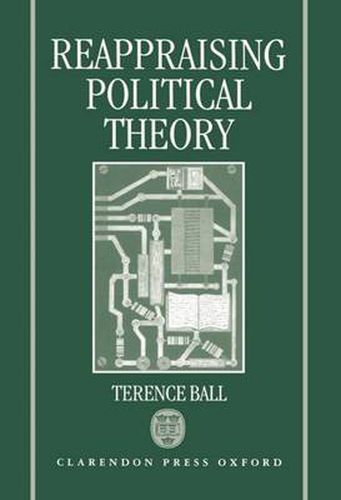Readings Newsletter
Become a Readings Member to make your shopping experience even easier.
Sign in or sign up for free!
You’re not far away from qualifying for FREE standard shipping within Australia
You’ve qualified for FREE standard shipping within Australia
The cart is loading…






Machiavelli, Hobbes, Rousseay, Mill and Marx, and Foucault - what really links these and other ‘classic’ political theorists? Not, argues Terence Ball, their common status as ‘dead, white, European males’, but instead the exciting and compelling way in which they can speak to us today. Professor Ball begins by setting out his liberating view of the way we should approach ‘classic’ texts. Using an approach that is both ‘problem-driven’ and methodologically ‘pluralist’, Ball offers new readings - and reappraisals - of key authors and classic works in political theory. Throughout he argues that the importance of the great texts lies in their repeated reinterpretation in the light of problems that arise for present-day readers. This tour de force, always entertaining and eclectic, focuses on the core problems surrounding many of the major thinkers. Was Machiavelli really amoral? Why did language matter so much to Hobbes - and why should it matter to us? Are the roots of the totalitarian state to be found in Rousseau? Were the utilitarians sexist in their view of the franchise? Written in a lively and accessible style, the book will provoke debate among students and scholars alike. Throughout, Terence Ball shows just how exciting and important political theory can be.
$9.00 standard shipping within Australia
FREE standard shipping within Australia for orders over $100.00
Express & International shipping calculated at checkout
Machiavelli, Hobbes, Rousseay, Mill and Marx, and Foucault - what really links these and other ‘classic’ political theorists? Not, argues Terence Ball, their common status as ‘dead, white, European males’, but instead the exciting and compelling way in which they can speak to us today. Professor Ball begins by setting out his liberating view of the way we should approach ‘classic’ texts. Using an approach that is both ‘problem-driven’ and methodologically ‘pluralist’, Ball offers new readings - and reappraisals - of key authors and classic works in political theory. Throughout he argues that the importance of the great texts lies in their repeated reinterpretation in the light of problems that arise for present-day readers. This tour de force, always entertaining and eclectic, focuses on the core problems surrounding many of the major thinkers. Was Machiavelli really amoral? Why did language matter so much to Hobbes - and why should it matter to us? Are the roots of the totalitarian state to be found in Rousseau? Were the utilitarians sexist in their view of the franchise? Written in a lively and accessible style, the book will provoke debate among students and scholars alike. Throughout, Terence Ball shows just how exciting and important political theory can be.